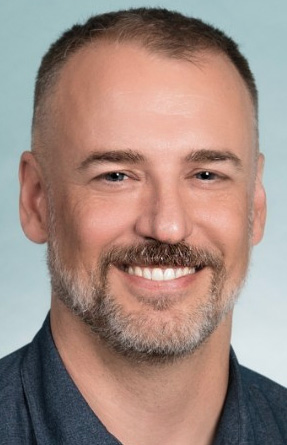
U.S. Federal Communications Commission (FCC) chairman Ajit Pai declined a top House Democrat's request for an emergency briefing on the wireless industry's data collection practices amid troubling reports about the availability of real-time location information, reports Harper Neidig in The Hill. more
 Usenet is 40 years old. Did we get it right, way back when? What could/should we have done differently, with the technology of the time and with what we should have known or could feasibly have learned? And what are the lessons for today? A few things were obviously right, even in retrospect. For the expected volume of communications and expected connectivity, a flooding algorithm was the only real choice. more
Usenet is 40 years old. Did we get it right, way back when? What could/should we have done differently, with the technology of the time and with what we should have known or could feasibly have learned? And what are the lessons for today? A few things were obviously right, even in retrospect. For the expected volume of communications and expected connectivity, a flooding algorithm was the only real choice. more
 Real browsers vs. virtual browsers. It's a hot topic among Web performance testing providers and customers. Which is the better choice? Well, it depends. They're not intended for use under the same circumstances and requirements, so you aren't comparing apples to apples, instead, you are comparing apples to grapples. more
Real browsers vs. virtual browsers. It's a hot topic among Web performance testing providers and customers. Which is the better choice? Well, it depends. They're not intended for use under the same circumstances and requirements, so you aren't comparing apples to apples, instead, you are comparing apples to grapples. more
 On February 12–13, 2024, the first round of the final consultations for a Global Digital Compact (GDC) took place online and offline at the UN Headquarters in New York City. Around 50 governments and 50 speakers from non-governmental institutions took the floor. It was not really a dialog; it was a formal presentation of three-minute statements. more
On February 12–13, 2024, the first round of the final consultations for a Global Digital Compact (GDC) took place online and offline at the UN Headquarters in New York City. Around 50 governments and 50 speakers from non-governmental institutions took the floor. It was not really a dialog; it was a formal presentation of three-minute statements. more
 I've been proud to serve Public Interest Registry (PIR) since 2017 and play a part in helping the organization support those with a mission to do good. I recently joined every one of my fellow board members in reaching the unanimous decision to approve the sale of PIR, as I believe PIR's mission will best be served by the sale and .ORG's long-term future will be stronger under Ethos Capital ownership. more
I've been proud to serve Public Interest Registry (PIR) since 2017 and play a part in helping the organization support those with a mission to do good. I recently joined every one of my fellow board members in reaching the unanimous decision to approve the sale of PIR, as I believe PIR's mission will best be served by the sale and .ORG's long-term future will be stronger under Ethos Capital ownership. more
A new law passed in Malaysia's largest city, Kuala Lumpur, this month will require all food and beverage outlets to provide wireless internet access to customers by April of this year. The law makes WiFi access for customers a requirement for food operators when applying for a new license for a restaurant or renewing an existing license. Cafes, pubs, bars and club lounges are also required to provide WiFi services, the mayor of Kuala Lumpur, Tan Sri Fuad Ismail, was quoted as saying to a Malaysian newspaper recently. more
 In August 1858, Queen Victoria sent the first transatlantic telegram to U.S. President James Buchanan. The cable system had taken a total of four years to build and used seven copper wires, wrapped in a sheath of gutta-percha, then covered with a tarred hemp wrap and then sheathed in an 18-strand wrap, each strand made of 7 iron wires. It weighed 550kg per km, with a total weight of over 1.3Mkg. more
In August 1858, Queen Victoria sent the first transatlantic telegram to U.S. President James Buchanan. The cable system had taken a total of four years to build and used seven copper wires, wrapped in a sheath of gutta-percha, then covered with a tarred hemp wrap and then sheathed in an 18-strand wrap, each strand made of 7 iron wires. It weighed 550kg per km, with a total weight of over 1.3Mkg. more
China is moving forward towards implementing a controversial cybersecurity law that could have significant implications for foreign businesses operating in that lucrative market, reports Katie Bo Williams in The Hill. more
In addition to knocking out power and Internet connectivity in a significant part of the New York metropolitan area, Sandy also had a surprising impact on the world's Internet traffic, traffic that neither originated from nor was destined to areas effected by the storm, Renesys reports. "From locations around the globe as varied as Chile, Sweden and India, some Internet traffic was forced onto alternate paths, avoiding failures at critical transit points in the NYC area." more
Defense Systems reports: "The U.S. government's sweeping new cybersecurity strategy announced May 16 states that the country will respond to a major cyberattack using any or all of the means at its disposal, reports the Associated Press. Although military response to a cyberattack is one of the options listed in the International Strategy for Cyberspace, it will be considered only as a last resort, officials said." more
 This year has been one of the busiest years for domain launches in quite a while. Before the end of 2022, we'll see one more significant domain launch, namely .KIDS, on November 29, 2022. This extension is being launched as a safe space on the internet for children and parents. The registry has set out some very strict use policies to make this happen. Some companies have already registered their brands during the Sunrise Period, while others have taken up names in the Community Sunrise. more
This year has been one of the busiest years for domain launches in quite a while. Before the end of 2022, we'll see one more significant domain launch, namely .KIDS, on November 29, 2022. This extension is being launched as a safe space on the internet for children and parents. The registry has set out some very strict use policies to make this happen. Some companies have already registered their brands during the Sunrise Period, while others have taken up names in the Community Sunrise. more
 According to a report just released by McKinsey & Company, we are on the verge of seeing a major shift to health care from home. The report says that as much as $265 billion in annual fees to Medicare and Medicare Advantage could shift to homes by 2025. We've already seen the start of the trend towards telemedicine. The spending on telemedicine was 38 times higher in 2021 compared to 2020. Most of that shift is obviously due to the pandemic. more
According to a report just released by McKinsey & Company, we are on the verge of seeing a major shift to health care from home. The report says that as much as $265 billion in annual fees to Medicare and Medicare Advantage could shift to homes by 2025. We've already seen the start of the trend towards telemedicine. The spending on telemedicine was 38 times higher in 2021 compared to 2020. Most of that shift is obviously due to the pandemic. more
 Reading up on COVID-19 and Zoom/Boris Johnson outcry yesterday, an analogy struck me between the two: the lack of testing. In both cases, to truly know how safe and secure we are, testing needs to be stepped up considerably. This post focuses on cybersecurity. Over the past days and weeks, more and more organisations have switched to digital products and services to sustain working from home, to keep productivity up and to be connected. more
Reading up on COVID-19 and Zoom/Boris Johnson outcry yesterday, an analogy struck me between the two: the lack of testing. In both cases, to truly know how safe and secure we are, testing needs to be stepped up considerably. This post focuses on cybersecurity. Over the past days and weeks, more and more organisations have switched to digital products and services to sustain working from home, to keep productivity up and to be connected. more
 For some years I hear people discuss that education needs to transform and adapt to the Digital Age. In one way education has: I am told that so called MOOCs, Massive Open Online Courses, are a huge success. Classes from lecturers at (top) universities are freely available online. But this is traditional education distributed and made accessible in a modern form. The debate ought to focus on education for the jobs and skills of the future. more
For some years I hear people discuss that education needs to transform and adapt to the Digital Age. In one way education has: I am told that so called MOOCs, Massive Open Online Courses, are a huge success. Classes from lecturers at (top) universities are freely available online. But this is traditional education distributed and made accessible in a modern form. The debate ought to focus on education for the jobs and skills of the future. more
The U.S. Department of Homeland Security has issued a warning about cybersecurity vulnerabilities in medical devices which have come after independent researchers, or the companies themselves, reporting the problems. more